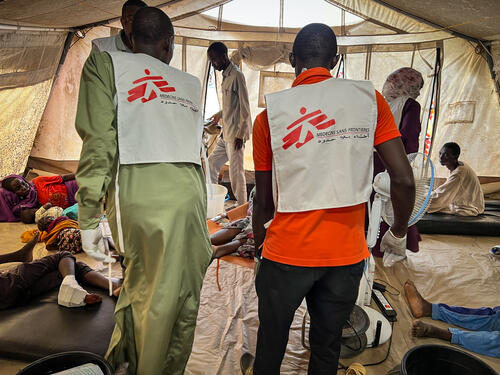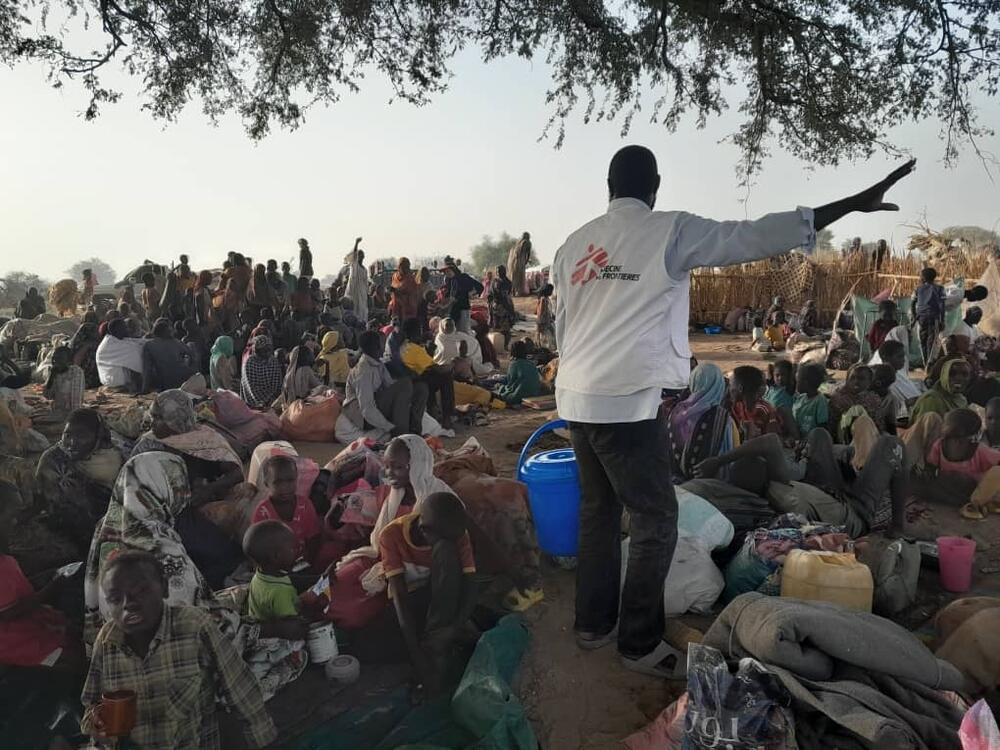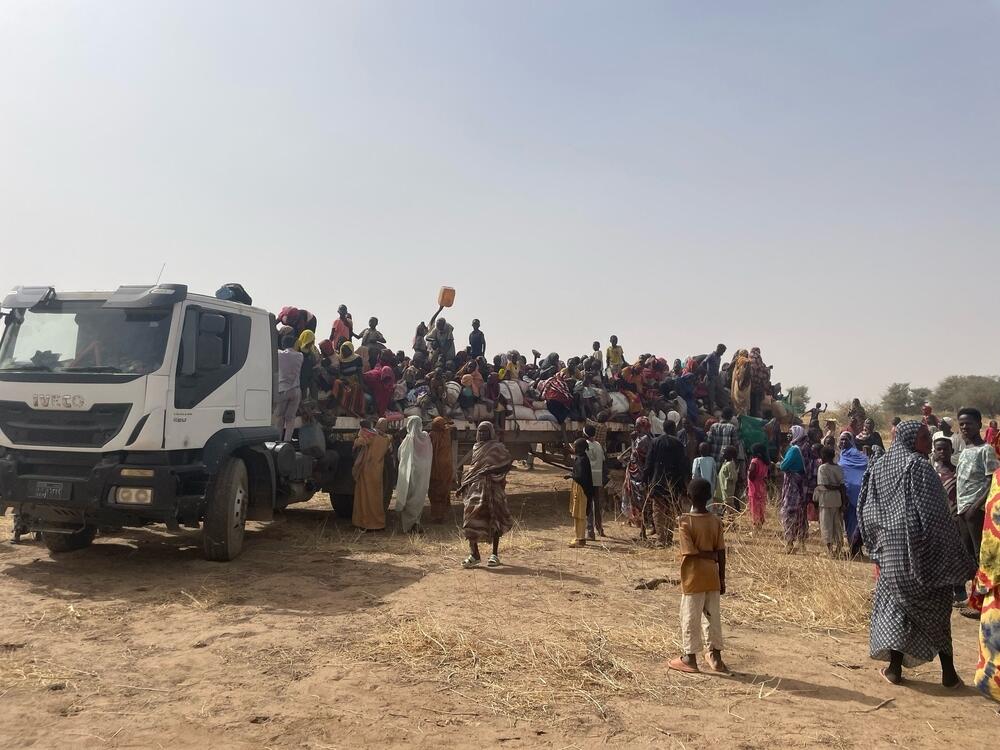Sudan: MSF teams launch emergency response as thousands flee Zamzam camp
Following the Rapid Support Forces’ (RSF) large-scale ground offensive on Zamzam camp in North Darfur that started on 11 April, hundreds of thousands of people have fled to the neighbouring city of El Fasher. They join communities who are already besieged and deprived of life-saving aid.
Twenty-five thousand more people reached the town of Tawila further west, where overwhelmed MSF teams are currently expanding activities to cope with the most pressing medical needs. Teams have treated children with severe dehydration and people with gunshot and blast injuries.
After months of an increasingly tight siege on the area, the RSF and their allied armed groups stormed Zamzam, Sudan’s largest displacement camp, which used to host at least 500,000 people near El Fasher.
By 16 April, the camp, by then largely destroyed, was reportedly under RSF control. The majority of the Zamzam population is believed to have fled to El Fasher, where they remain trapped, out of reach of humanitarian aid and exposed to ongoing attacks and further mass violence.
Meanwhile, MSF teams in Tawila saw over 25,000 people arriving from Zamzam and nearby areas between 12 and 15 April. Displaced people are now arriving more sporadically and at great risk to their lives along the way.
We are making an urgent appeal to put an end to the siege and the atrocities; to deliver humanitarian aid, including by air-dropping food and medicines to El Fasher if necessary; and to allow those who wish to flee to do so safely.

Our work saves lives
“So far we have received over 170 people with gunshot and blast injuries. 40 percent of them are women and girls”
What is MSF doing?
Our teams set up a health post at the entrance of Tawila to provide new arrivals with water, food, and immediate medical care.
We refer critical cases to the local hospital where we have been working since last October. About 1,600 patients so far have required emergency outpatient services, mainly because of severe dehydration.
“We are treating children who were literally dying of thirst on their journeys,” said Marion Ramstein, MSF project coordinator in Tawila. “So far we have received over 170 people with gunshot and blast injuries. 40 percent of them are women and girls.”
"People tell us that many injured and vulnerable people could not make the trip to Tawila and were left behind. Almost everyone we talk to says they lost at least one family member during the attack.”
The risk of ethnic violence
Horrific reports are emerging from Zamzam camp, where hundreds of people are estimated to have been killed. Fighters were said to be going door-to-door, shooting people hiding in their homes and burning large parts of the camp.
Casualties include eleven staff from the humanitarian organisation Relief International, which was running the only remaining clinic in the camp after MSF suspended all its activities there in February due to escalating violence and blockades.
We urge the RSF and all armed groups in the area to spare and protect civilians and to ensure that those who want to flee can do so without further harm. States and diplomatic actors must use their leverage to translate hollow statements into concrete actions.
There have been repeated warnings from the UN and many observers about the risk of mass killings and ethnic violence in the region. El Fasher and the surrounding displacement camps are mostly inhabited by people from the non-Arab Zaghawa and Fur ethnic groups, while most of the RSF fighters and their allies originate from Arab tribes.
More is needed
After two years of a catastrophic war on people met by neglectful indifference, we cannot simply resign ourselves to the current collective failure to provide vital assistance where it’s most needed.
“A massive humanitarian response is needed, now more urgently than ever,” said Rasmane Kabore, Head of MSF in Sudan.
“If the roads to El Fasher are blocked, then air operations must be launched to bring food and medicines to the estimated one million people who are trapped there and being starved.
“A scaled-up response is also needed in Tawila, where some of the survivors are being received and local capacities are overwhelmed.”
MSF and several other actors are launching emergency interventions in Tawila, but much more is needed in terms of water, food, medical care and shelter.
MSF and the crisis in Sudan
The violence between the Sudanese Armed Forces (SAF) and the Rapid Support Forces (RSF) has trapped millions of people in the middle of an unexpected conflict. Sudan now has the world's largest displacement crisis, with millions forced to flee their homes, while access to essential services such as healthcare has become increasingly difficult.
Médecins Sans Frontières / Doctors Without Borders (MSF) teams already working in Sudan have been responding to the crisis since its first moments.

